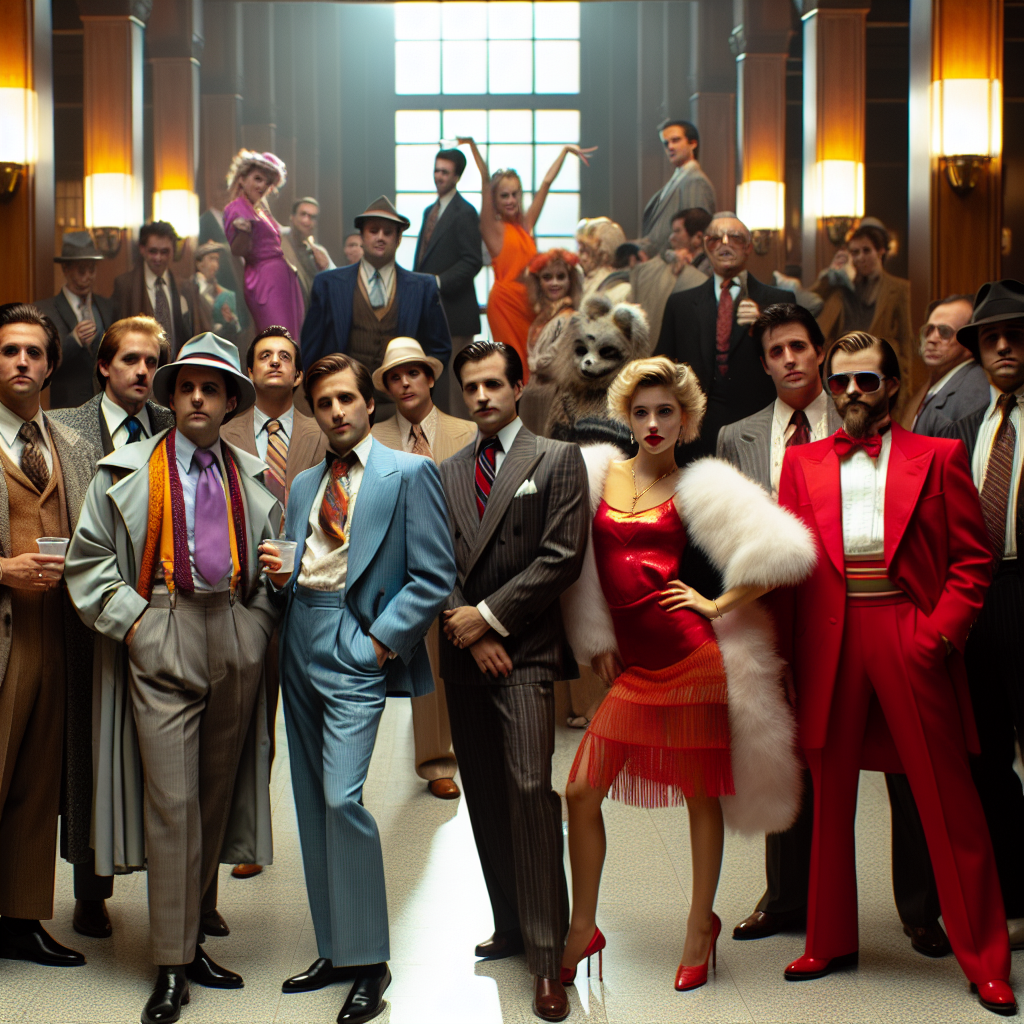Why Trading Places (1983) Remains a Timeless Classic: Discover the Comedy Gold in this Iconic Film
Introduction to the Cinematic Gem
Released in 1983, Trading Places is a comedy film that stands out in cinema history for its seamless blend of humor, social commentary, and character development. Directed by John Landis and starring Dan Aykroyd and Eddie Murphy, the film became an instant classic, praised for its witty script and engaging performances. Set against the backdrop of the opulent world of Wall Street, Trading Places explores themes of wealth, identity, and societal structures through a comedic lens. Its significance is also enhanced by its exploration of the social and economic divides of the 1980s, making it not only a source of entertainment but also a subtly subversive piece of cultural commentary.
Main Themes and Cinematic Techniques
At the heart of Trading Places are themes of class disparity and the arbitrary nature of social status. The film introduces us to Louis Winthorpe III (Dan Aykroyd), a wealthy commodities broker, and Billy Ray Valentine (Eddie Murphy), a street hustler scraping by. Through a twisted experiment concocted by the wealthy Duke brothers, Randolph (Ralph Bellamy) and Mortimer (Don Ameche), Winthorpe and Valentine are unwittingly forced to swap places. This social experiment sets the stage for a satirical exploration of nature versus nurture—a classic debate that questions the inherent characteristics that define success and identity.
The film expertly utilizes comedic elements to underscore these themes. One standout example is the use of situational irony. When Valentine is thrust into Winthorpe’s world of luxury, he initially struggles but quickly adapts, debunking the myth that status equates to inherent superiority. Conversely, Winthorpe’s descent into poverty forces him to reevaluate his understanding of wealth and personal worth, showcasing how quickly one’s social standing can change. The humor in these situations is elevated by the performances of Aykroyd and Murphy, whose contrasting styles—Aykroyd’s dry wit and Murphy’s energetic charisma—turn the film into a compelling character study.
Cinematically, Landis employs clever techniques to bolster the film’s narrative and comedic impact. The film’s pacing is brisk, keeping the audience engaged while allowing for moments of comedic relief to land effectively. Additionally, the use of contrasting settings—opulent mansions versus bustling city streets—visually represents the stark divide between classes, enriching the film’s thematic depth.
Character Arcs and Cultural Reflection
Character development plays a crucial role in Trading Places, particularly through the arcs of Winthorpe and Valentine. Winthorpe’s journey from arrogance to humility and Valentine’s evolution from a con artist to a sophisticated broker are both satisfying and poignant. These transformations are grounded in authenticity, making each character’s growth believable and impactful. The film critiques the superficial judgment based on appearances and social class by illustrating that integrity and intelligence can thrive under any circumstances.
The film also sheds light on societal and cultural contexts of the 1980s, a decade marked by significant economic disparities and material excess. In doing so, it reflects broader social issues, including systemic racism and class discrimination. Valentine’s initial encounter with the police highlights racial profiling, a topic that remains relevant today. By allowing Valentine to succeed in a world from which he was previously excluded, the film challenges stereotypes and encourages a more inclusive narrative.
Legacy and Influence
The legacy of Trading Places is evident in its ongoing relevance and the lasting impact it has had on both the film industry and popular culture. The film’s critique of social constructs and economic inequality resonates today, as discussions around wealth distribution and privilege continue to be pertinent. It also paved the way for future films that blend comedy with social commentary, proving that humor can be a powerful tool for eliciting reflection and change.
In the film industry, Trading Places solidified Eddie Murphy’s status as a leading comedic actor and demonstrated Dan Aykroyd’s versatility beyond his earlier roles. It also set a precedent for ensemble casts in comedy, showing how diverse talents can come together to create something greater than the sum of its parts. Moreover, the film’s success reinforced the viability of smart comedies in Hollywood, influencing future directors and writers to explore similar thematic territory with both humor and heart.
Reflective Questions and Takeaways
As we reflect on Trading Places and its enduring appeal, several questions arise: How do the themes of the film resonate with today’s societal issues? What can contemporary films learn from the way Trading Places balances comedy with meaningful commentary? And, perhaps most importantly, what is the role of cinema in challenging and reshaping societal norms?
In conclusion, Trading Places remains a timeless classic not only because it entertains but also because it provokes thought. Its clever narrative, coupled with outstanding performances and insightful social observations, ensure its place in the annals of cinematic history. As audiences continue to discover this film, it offers a lens through which to examine modern life and a reminder of the power of storytelling to both entertain and enlighten.
Got more questions? Our personalized Movies Explorer AI assistant is here to help. Click here to start a conversation!
[Advertisement]
Looking for deeper meaning in your favorite movies? Discover how ANY movie relates to positive biblical principles with Movies and Scripture GPT from BGodInspired.com. Click here to explore insights you might not have realized! . Simply key in any movie and let it show you insights you might not have realized otherwise!
[Advertisement]

